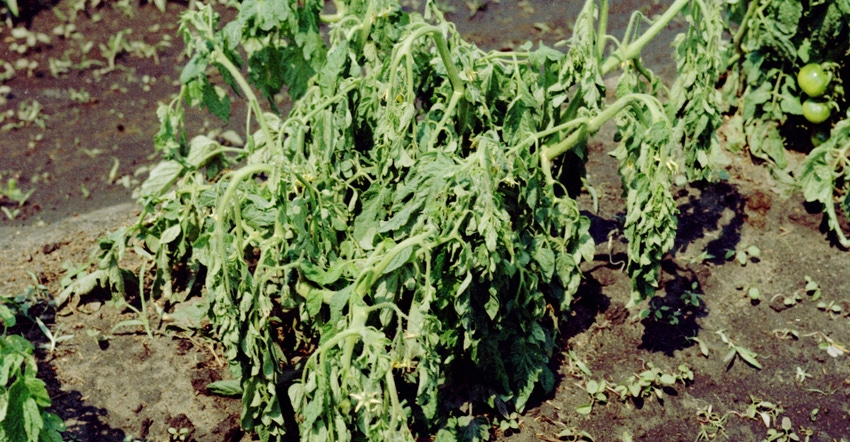May 6, 2020

USDA has identified Ralstonia solanacearum race 3 biovar 2 in a symptomatic geranium plant in a commercial greenhouse in Michigan. The bacterial pathogen, which has no effective chemical control, causes a wilt disease in geraniums and several important food crops, including potatoes, tomatoes, peppers and eggplants. It can be transmitted through contaminated soil, irrigation water or equipment.
This incident was first identified by a vigilant Michigan grower who noticed unusual wilt symptoms on his geraniums and sent them for testing.
“Ensuring this issue is dealt with quickly and safely is crucial to protecting the state’s agriculture economy,” says Gary McDowell, director, Michigan Department of Agriculture and Rural Development. “Thanks to the grower’s alertness, combined with MDARD’s and USDA’s collaborative response, we have helped avert the establishment of this devastating disease into U.S. agricultural production systems.”
Mike Philip, director of MDARD’s Pesticide and Plant Pest Management Division, adds, “This is the first introduction of the pathogen in the U.S. since 2004, when this disease was detected and eradicated in 27 states, including 14 facilities in Michigan. It’s important to note the bacterium does not pose a threat to public or animal health or to food safety.”
MDARD’s Pesticide and Plant Pest Management Division oversees the department’s plant health programs and will lead Michigan’s efforts to rid the state of this disease.
The geranium that tested positive was a Fantasia "pink flare" variety imported from a production facility in Guatemala. USDA determined an additional 288 plant growers in 39 states received affected shipments from the Guatemalan facility, including 41 growers in Michigan. The affected businesses are being notified and will be working with state and federal officials to identify and safely dispose of infected plants.
“This incident is a serious threat to our industry,” says Geoff Hansen, executive director of the Michigan Greenhouse Growers Council. “The affected facilities must work aggressively with MDARD to contain and eliminate this disease.”
In 2018, the wholesale value of Michigan’s floriculture industry totaled $467 million, the third largest in the U.S. Potatoes are Michigan’s second-leading produce commodity, generating $182 million in farm gate sales each year while Michigan-grown tomatoes are valued at $35 million annually.
Source: MDARD, which is solely responsible for the information provided and is wholly owned by the source. Informa Business Media and all its subsidiaries are not responsible for any of the content contained in this information asset.
You May Also Like




